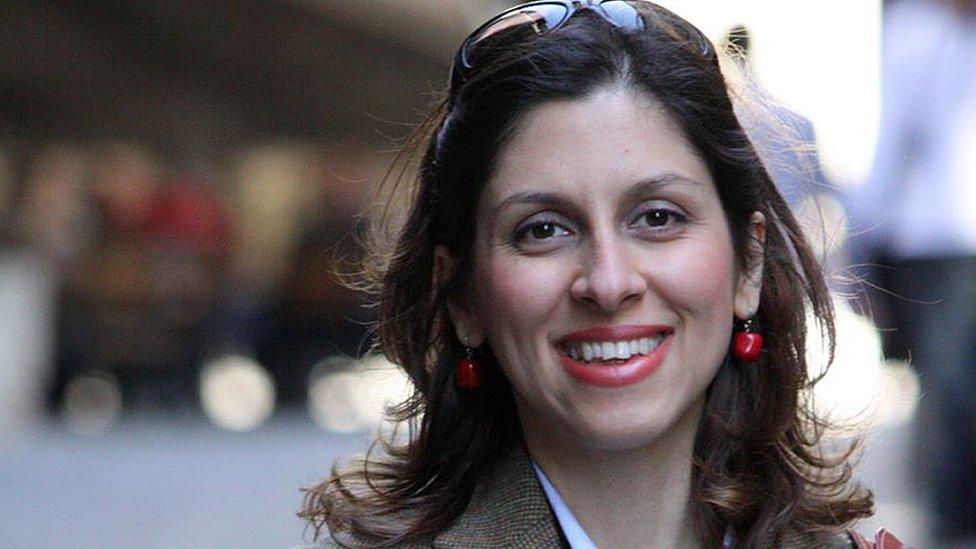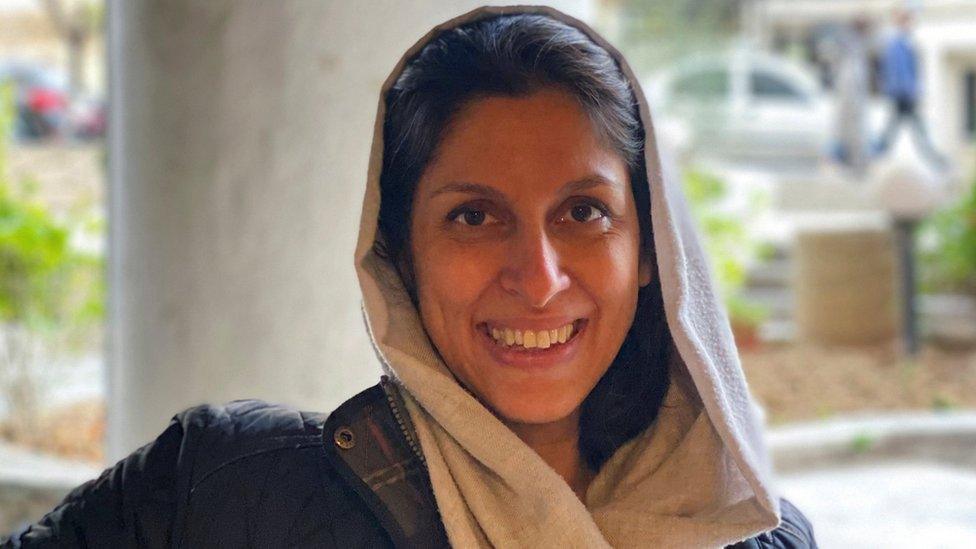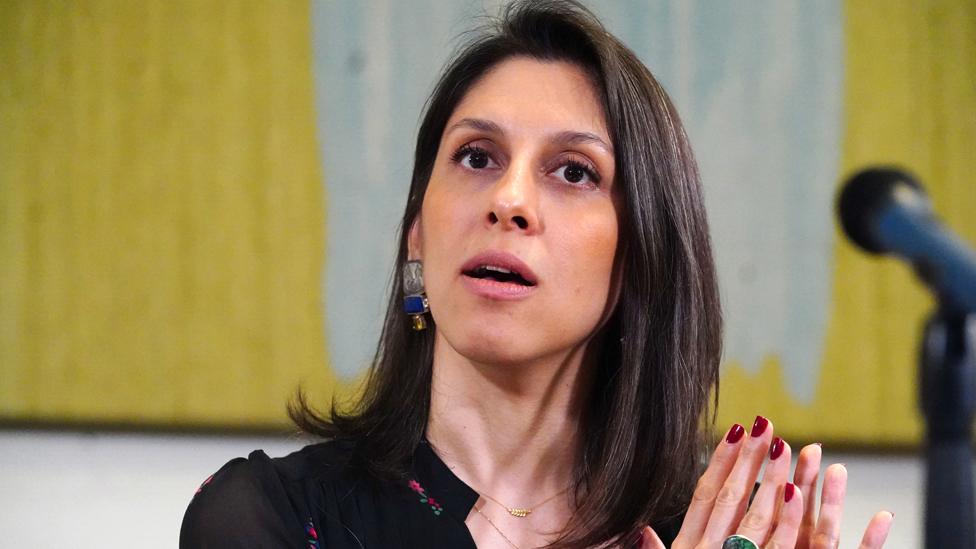Nazanin Zaghari-Ratcliffe: 'Freedom is sweet... but it's not easy'
- Published
Nazanin Zaghari-Ratcliffe: I won't recover for a long time
Nazanin Zaghari-Ratcliffe says she still finds it difficult to keep up with the "hectic" pace of life two years after being released from jail.
A British-Iranian national, she told BBC Radio 4's Woman's Hour she still struggled to think about the future after so long in prison in Iran.
She spoke about suffering with PTSD and depression after being detained in 2016 and held in prison for six years.
"Freedom is sweet, it's amazing, but it's not easy," she said.
Ms Zaghari-Ratcliffe was arbitrarily detained, initially on spying charges which she strongly denied. She was widely seen as a hostage used by the Iranians to pressure the UK government to pay a long-standing debt, and was released once a diplomatic settlement was reached.
She was released from prison in March 2022 and returned to the UK following a sustained campaign for her freedom.
Ms Zaghari-Ratcliffe was speaking to Woman's Hour host Emma Barnett as part of her final show before the presenter joins BBC Radio 4's Today programme next month.
She told the programme she still finds it difficult to think about the future.
"For a very long time I didn't have to worry about anything apart from my day, about what I'm going to eat and which book I'm going to read," she said.
She added she found it difficult to make plans with friends in advance. "I've never thought about two months ahead for the past six years," she said.
Ms Zaghari-Ratcliffe also described "going through PTSD, depression, anxiety of meeting new people and getting out of the house."
She suffered with both conditions during her time in prison, according to a medical report released in 2021.
Her daughter was a toddler at the time of her arrest.
She said she regretted "my child growing up without me," saying: "I think there is a bit of our children's childhood that is stolen from us, and I don't think I can ever get over that bit."
On leaving prison, she said: "Six years is a very long time. I did not come back to the world I had left."
She added: "I underestimated how complicated freedom would be."
"When you think about freedom you think about the things you have done in the past but if you are in prison for a long time those things don't exist any more. So I came to a home that in my head was very different in reality. My child was not two when I left her and she was eight when I came back."
Since leaving prison, Ms Zaghari-Ratcliffe has campaigned for the release of hostages across the globe, including Narges Mohammadi who is in prison in Iran and was awarded the Nobel Peace Prize last year.
"The fight is not over," she said. "There are so many of my friends who are in prison. I will carry on as much as I can to help them and at least shine a light on their plight."
She is currently celebrating the release of four Iranian environmentalists from Iranian prisons, two of whom she knew during her detention.
She is also campaigning for the release of Russian-British national Vladimir Kara-Murza, who was convicted of treason after criticising Russia for its war in Ukraine.
"The day that they are free is very rosy and beautiful, but actually prison brings a lot of trauma with itself."
"It's going to take a long time for us to recover," she said.
You can listen to the full programme here.
Related topics
- Published23 May 2022

- Published11 March 2021

- Published4 April 2023
